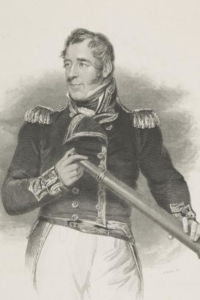
Thomas Cochrane, 10th earl of Dundonald, (born December 14, 1775, Annesfield, Lanarkshire, Scotland—died October 31, 1860 and was buried in Westminster Abbey, London, England), iconoclastic British politician and admiral, who ranks among the greatest of British seamen. He played a vital role in disrupting French and Spanish naval forces, employing innovative tactics and strategies that revolutionized naval warfare. His legacy as a naval hero and social reformer continues to inspire generations, showcasing the remarkable impact one individual can have on history.
In February 1814, Cochrane was implicated in a plot involving one of his uncles to make money on the stock exchange by spreading false rumors about the death of Napoleon I. He was expelled from the Parliament and deprived of the Order of the Bath, which he had been awarded for his exploit in 1809 against the French fleet.
At that lowest point of his fortunes, Cochrane accepted (May 1817) the invitation of Chile to command its fleet in the war of independence against Spain. His capture of the Spanish flagship Esmeralda in Callao harbor in November 1820 and subsequent actions by him contributed largely to the independence of not only Chile but also Peru, and later Brazil to whom he transferred his services from 1823 to 1825 in its war against Portugal.
Having returned to Britain, Cochrane continued to vigorously proclaim his innocence in the 1814 stock market matter, he was granted a free pardon. Moreover, he was reinstated in the navy with the rank of rear admiral. In 1831, he succeeded his father as earl of Dundonald. In 1847 his Knight Grand Cross of the Order of the Bath (GCB) was also restored to him, and from 1848 to 1851 he commanded the West Indies station.